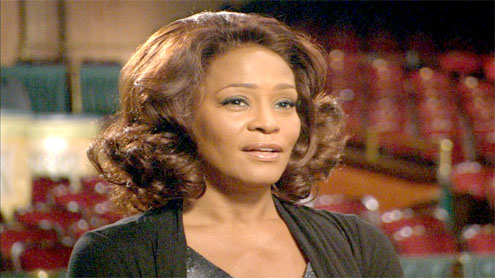 SRINAGAR/ MUZAFFARABAD: Indian Kashmir’s top separatist called on Thursday for protesters to block police and army camps with sit-ins, posing a new challenge to security forces as they struggle to restore order.
SRINAGAR/ MUZAFFARABAD: Indian Kashmir’s top separatist called on Thursday for protesters to block police and army camps with sit-ins, posing a new challenge to security forces as they struggle to restore order.
“People should stage peaceful sit-ins outside the army camps to remind the troopers to stop human rights violations in Kashmir and leave it,” Syed Ali Geelani, who has led protests since June, told reporters in Srinagar. He said the elders should “hand over letters to this effect to the officers in charge of the camps.”
Geelani told a news conference that sit-ins should be ensured to remain peaceful. “The protests on Sept. 21 will be peaceful where people will chant slogans like ‘Go India, Go Back!,” Geelani said, adding that petitions would also be handed to army camp officers urging them to leave Kashmir.
The new action, the first of its kind in the wave of demonstrations, will begin next Tuesday, said the 81-year-old leader, who has set a calendar for protests that has been rigorously followed to date.
Eight people were injured Thursday when Indian security forces opened fire on stone-throwing protesters in Kashmir, in the latest violence to hit the region, police said.
The protesters were injured when security forces opened fire at two separate places in Sopore town, 50 km north of Indian Kashmir summer capital of Srinagar, a police spokesman said. The condition of two of the injured is critical, he said.
“Security forces had to open fire as they were attacked with stones and bricks in the evening,” the spokesman said.
Separately Thursday nine militants were killed in two separate gunfights between militants and Indian security forces in north Kashmir frontier Gurez and in south Kashmir Tral town. “In the ongoing operations by the army, 30 terrorists have been killed between Sept. 1 and Sept. 16 in the Valley,” the defense spokesman said.
The death toll from three months of unrest rose to 94 on Thursday after the cousin of another separatist leader, Yasin Malik, died of injuries suffered in a shooting last month, Malik’s spokesman said.
Also on Thursday, five paramilitary officers were injured in the main town of Srinagar when their vehicle crashed as a small group of protesters defied a curfew and pelted them with stones, a police spokesman said.
All major towns in Kashmir remained under curfew for the fifth day, leading to complaints from locals that they were running low on food and water.
A wave of disappointment swept across curfewed Indian Kashmir after no concrete results emerged out of a government meeting aimed at ending spiraling protests.
In New Delhi, the government of Prime Minister Manmohan Singh faced criticism from several commentators after a five-hour crisis meeting between political leaders held in the capital on Wednesday.
“Wars are won and insurrection defeated by leaders, not committees,” wrote commentator Manoj Joshi in the Mail Today newspaper. “The Manmohan Singh government seems bent on defying this logic.” Samar Halarnkar, writing in the Hindustan Times, said “the all-party meeting in Delhi has utterly failed to address the (Kashmir) valley’s realities.” He warned of the insurgency getting a new lease of life unless the grievances of local people were addressed.
“Ironically, India is talking through the barrel of gun,” said separatist leader Mirwaiz Umar Farooq, the chairman of the All Parties Hurriyat (Freedom) Conference. “Curfew, talks, peace efforts, meetings and killings can’t go together.” Even pro-Indian Kashmiri parties have criticized the government. Kashmir’s opposition Peoples’ Democratic Party said the outcome was cosmetic and demanded freeing jailed protesters.
The continuing cycle of strikes and curfews has shut down schools, colleges and offices, stopped newspapers from being printed, and made food and medicine scarce.
“My son is on a life-saving drug, he has medicines left for the next two only,” said Imtiyaz Shah, a 44-year-old hotelier. “I feel so helpless.”
Kashmiris face a government that has placed little priority on finding a solution to Kashmir, an issue that has little electoral impact across the rest of the country.
“Well, the outcome of yesterday’s meeting in New Delhi is a statement from Indians that they don’t care about Kashmiri Muslims,” said Rehana Gouse, a 32-year-old school teacher.
“Our children are brutally killed by forces, we are living in jail for the past three months.” Part of the anger is directed against the Armed Forces Special Powers Act (AFPSA), which gives security forces sweeping powers to shoot, arrest, search and detain people in battling the insurgency in Kashmir.
“I expect nothing from New Delhi, who are helpless on revoking draconian laws like AFSPA which means a soldier has the right to shoot you on mere suspicion,” said 24-year-old-student Zubiar Khan.
Meanwhile, Pakistanis set fire to an effigy of Singh, marching to protest against India over three months of violence.
More than 500 supporters and activists from jihadi groups took part in the protest march in Pakistani-administered Kashmir.
They marched through the regional capital Muzaffarabad, before setting on fire the Indian flag and an effigy of Singh.
The crowd shouted “Go India, go back,” carrying placards scrawled with slogans such as “Indian dogs, go back” and calling for jihad (holy war).
“India is forcing us to cross the Line of Control and we will, if it does not stop atrocities in Indian-occupied Kashmir,” said Syed Salahuddin, a leader of militant group Hizb-ul-Mujahedin which is fighting Indian rule in Kashmir.
Abdul Aziz Alvi, who is the head in Pakistani-administered Kashmir of the charity Jamaat-ud-Dawa, which is on a UN terror blacklist and is also officially banned in Pakistan, said they would continue their jihad against India.
“We are waiting for the international community’s reaction to stop Indian atrocities and after that we will reply — bullet with bullet,” he said. -arabnews











